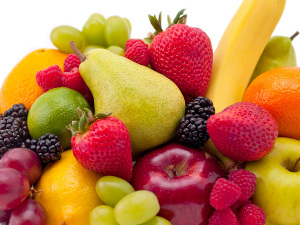Guatemalan baby banana grower aims for direct exports

After growing baby bananas exclusively for Chiquita Brands International (NYSE: CQB) for seven years, a Guatemalan farm has embarked on a fresh branding scheme to sell directly to importers or retailers.

Tropic 502 general manager Victor Morales
With the support of the Dutch Centre for the Promotion of Imports from developing countries (CBI), Compania Agricola Independencia (Caisa) made its first appearance at Fruit Logistica in Berlin this month promoting its Tropic 502 brand.
Caisa general manager Victor Morales said his business had always been independent since Chiquita enquired about the possibility of sourcing baby bananas from 129 hectares of his land.
The first plantation was developed in 2006 with production coming on-line in 2007, and the company currently supplies around 450,000 boxes of bananas per annum to the multinational.
"We still work with Chiquita, but our company over the years has really established itself and we now have the opportunity to start exporting a small volume of fruit directly with our own brand Tropic 502," Morales told www.freshfruitportal.com during the event.
"During all this time we've only been selling our production to them, and we've been doing all right. We’ve learned a lot, their quality requirements are very high and we have learned how to become more efficient because this variety of banana is different."
He said baby bananas were more susceptible to wind blow-downs as the trees were very tall and thin, but the taste was much sweeter and the fruit often enjoyed a premium of 20-25% over their Cavendish counterparts. Also, fewer applications against disease Black Sigatoka are needed than with conventional bananas.
"We’ve had a lot of blow-downs, almost one or two every year. Some of them have been very severe," Morales said.
"We have a project at our farm which by the way is certified by the Rainforest Alliance. We plant trees in certain areas of our farm in order to shield us from wind gusts; it has worked at a certain percentage, but it’s not 100% efficient."
In addition to Caisa's Rainforest Alliance seal, the company is working on GlobalG.A.P. certification, which Morales hopes to obtain within a couple of months.
"We’re very focused on giving something back to our community. Since we are not a big company, we cannot afford to do very big projects but we do small projects like rebuilding the school.
"If our area is hit by weather we do everything we can to help our people, to get them food. We try to provide them with secure jobs; that's our main objective and we try to expand a little bit."
Morales said Chiquita had been supportive of the farm branching out to do its own commercialization, and he was very grateful for the efforts of CBI.
"It has been a negotiation with them [Chiquita], saying we are interested in setting aside part of our production so that we can export it directly or commercialize it the best way we see fit, and it’s been an arrangement with them," he said.
"CBI support small-to-medium companies in third world countries. Our company applied for this program and we were very fortunate to be accepted.
"This program is like an export coaching progra -; they really have been showing us the general aspects of exporting and the general aspects of doing business in Europe."
To date, Morales said baby bananas - with sales split 50-50 between the U.S. and Europe - had a very different market dynamic to the Cavendish variety.
"It is a different product. Many people relate it to a regular banana, but it's different, catering to a niche market. It's an exotic fruit," he said.
"It’s not like a commodity as is the case with regular bananas, so you have to work to find a market for this product.
"They have the same nutritional value as a regular banana, obviously in lesser quantities. It's much sweeter than a regular banana, and because of the small size you can eat it without a problem, especially a child.















































